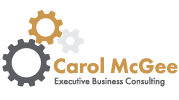I was inspired to write this article by three visionary and innovative entrepreneurs I had the pleasure of meeting in August, whose products and services not only help make Irish society more environmentally responsible and sustainable, but will save businesses a lot of money by eliminating unnecessary waste!
Did you know……
There are more than 23 million SMEs in the EU and it is estimated that they generate 60% of European GDP (EC, 2012). The European Commission estimates that 60% to 70% of the environmental impact relates to SMEs.
Energy
Research indicates that in energy alone there is potential of 10%-25% savings to be made and despite the fact that 40% of these savings can be realised without any capital investment, SMEs are slow to adapt (J.Fresner et.al 2017). Typically, an average SME in Ireland will have a profit margin of around 6%, with average energy costs of 10% of total operating costs, it is very easy for SMEs to reduce their energy costs by anything up to 30%. (cru.ie).
At this point I would like to introduce Xavier Dubussion, CEO of Retrokit.

Based in Cork, Retrokit has developed a software solution that allows councils andhousing associations analyse the energy costs of their properties and use scenario planning to establish potential savings from energy renovations. For me a significant value of this software is that it eliminates one of the main barriers to investing in ‘green’ projects, the perception of cost. Retrokit gives businesses the data they need to make informed decisions and communicate a detailed cost benefit analysis to investors and stakeholders.
Food
In the EU, it is estimated that each year around 88 million tons of food are wasted with associated costs of some 143 billion euros (Hospitality Europe, 2017). The Environmental Protection Agency (EPA) has found that 250,000 tonnes of food waste are generated annually in Ireland by commercial food businesses such as restaurants, shops and workplace canteens, estimating the annual cost to the Irish Hospitality sectors at over €300 million (epa.ie).
I would now like to introduce Raquel Noboa, founder and CEO of 50 Shades Greener.

Based in Clare, Raquel’s mission is to help deliver a more sustainable Hospitality Industry. Her company provides very effective and practical training to businesses on how they can achieve sustainability and reduce costs in their operations. Given the current situation with COVID-19 I believe her training represents an extremely worthwhile investment for any business that plans on being viable in medium to long term. In particular I recommend you watch her recent video on not wasting a good crisis.
Water
On average, 144 litres of water per person per day is supplied to households in Europe. In Ireland 1.6 billion litres of drinking water is produced every day almost half of treated water is lost through leaks from both customer properties and the distribution network (epa.ie).
So last but not least let me introduce Dave Hogan, founder and CEO of Smartflow.

SMART FLOW is a Dublin-based water technology company that has developed a solution that monitors water usage and leaks. Smartflow saved its customers approximately €620,000 in water charges by preventing 27.5 million litres of water loss through leaks in 2020 alone. For Government, Councils and any business that pays for its water this investment is surely a must.
To conclude the elimination of waste underpins the LEAN concepts. If your resources are not producing value then their allocation and use needs to be reviewed and changed. Whether its energy, food or water all resources have a cost!
I suggest that all businesses should draft a simple energy plan that adopts the principles of PDCA (Plan, Do, Check, Act). Below is a simple illustration chart to get you going. The quality is not great but you can access the original paper here. Good luck.

References used:
Fresner et al, 2017, Energy efficiency in SMEs: Lessons learned from 280 energy audits across Europe.
Prashar, 2017, Adopting PDCA cycle for energy optimisation in energy intensive SMEs.







